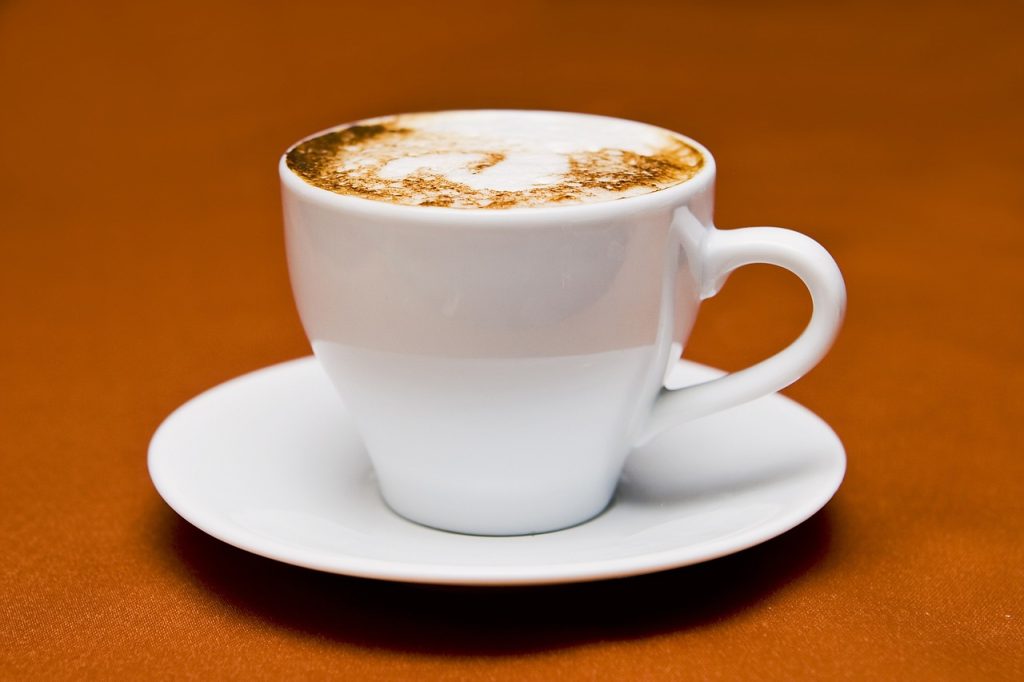Caffeine temporarily numbs the taste buds, causing drinks and food to taste less sweet. This can have unpleasant consequences if it leads to increased sugar consumption.
Caffeine and Taste Buds
Researchers from Cornell University investigated the effect of caffeine on taste buds. They published their findings this week in the Journal of Food Science. Previous studies with mice have demonstrated the presence of adenosine receptors in cells sensitive to sweetness. These receptors are activated by adenosine in the plasma to enhance ‘sweetness signals’ in the taste buds.
Caffeine is a commonly used antagonist of these receptors, thus suppressing them. Given that adenosine receptors cause the feeling of drowsiness, caffeine owes its popularity as a stimulant to this.
The researchers at Cornell were curious whether caffeine, by suppressing adenosine receptors, also suppresses the perception of sweetness. They divided 107 people into two groups, both of which received decaffeinated coffee. One group had 200mg of caffeine added to it to match the amount in a strong cup of coffee without any other differences in the coffee.
Participants in both groups were given a sugar solution to drink after the coffee and were asked to rate the taste for sweetness, bitterness, and saltiness. The next day, this was repeated, but the groups were reversed so that everyone received both decaffeinated coffee and coffee with added caffeine. The results showed that people perceived the sugar solution as less sweet when it followed the caffeinated coffee. Bitterness and perceived saltiness were not affected by caffeine.
Less Sweet, So More Sugar?
Now, one could consider the possibility that someone might use more sugar in subsequent drinks or food after consuming caffeine. This chance certainly exists. The question is to what extent one adheres to certain habits in practice or adapts them based on a cup of coffee.
In my case, coffee is the only thing to which I add sugar daily. In fact, for a long time, I added some coffee to my sugar instead of the other way around. I’ve never drunk decaffeinated coffee myself, so I have no idea if I would add less sugar to it. In a follow-up study, it would be interesting to see what happens in both cases when people are allowed to add sugar themselves. Will they add more sugar to the caffeinated coffee after finding out that the standard amount they use suddenly isn’t strong enough? Or less sugar when they drink decaffeinated coffee for the first time?
I strongly suspect that regardless of the type of coffee we drink, we simply stick to the amount we’re used to.
Another possible follow-up study could be to look at the amount of food consumed over the course of the day under the influence of both types of coffee. And specifically, at the amount of sugars consumed. For example, do you consume a bag of candy in one day instead of two when you ingest caffeine?
Also, we must not forget that caffeine is one of the few natural fat burners, so one might wonder which property ultimately has a greater effect on your weight. For now, I don’t assume that you gain weight from caffeine rather than lose it.
Placebo Effect of Caffeine
Another remarkable outcome of the study was that participants who could not identify which coffee contained caffeine felt increased alertness in both cases. The researchers attribute the increased alertness felt after decaffeinated coffee to a placebo effect.
However, this placebo effect was also observed when caffeine was added. Although participants reported the same increased alertness, their reaction time in a test did not increase. They felt more alert but were not (in terms of reaction) actually so. The researchers take into account a saturated effect by experienced coffee drinkers, whereby caffeine no longer has an effect.
References
- Ezen Choo, Benjamin Picket, Robin Dando. Caffeine May Reduce Perceived Sweet Taste in Humans, Supporting Evidence That Adenosine Receptors Modulate Taste. Journal of Food Science, 2017; DOI: 10.1111/1750-3841.13836

